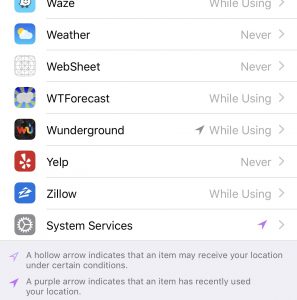When I read last month that the State of Ohio has begun to accept tax payments in Bitcoins, I knew that the legitimacy of cryptocurrency has turned a corner. Normally I see the use of Bitcoins limited to investing or collecting ransoms for reasons varying from malware placed in my computer to last week’s example of a bomb placed in my office building. This act by Ohio sets a whole new precedent. Frankly, I expected to see this first in a state which has legalized recreational marijuana, not in a state which has only just started to offer a medical marijuana program.
According to the Cincinnati Enquirer:
“On Monday, Ohio became the first state in the nation to accept the cryptocurrency, bitcoin, for 23 different business taxes ranging from sales tax to severance taxes on oil and gas…..a business signs up through OhioCrypto.com, enters their tax payment information then pays through a third-party processor, BitPay. BitPay then converts the bitcoin into dollars that are deposited into the state’s accounts. There is a minimal fee, 1 percent, for the transaction compared with 2.5 percent assessed when businesses use credit cards.”
Where could I use Cryptocurrency?
Well, if you lived in Ohio, and ran a business, you could obviously use it to pay your taxes. You can also use Bitcoins to pay for your vacations (CheapAir and Expedia), Food (Subway and PizzaForCoins), Technology (NewEgg, Microsoft, Dish), Jewelry at Reeds, and coffee (Starbucks will be accepting Bitcoins in 2019). Here’s a partial list of companies that accept Bitcoin payments.
How would I do that?
First off, you’ll need to set up a Bitcoin or other cryptocurrency wallet. There are a number of different kinds and brands of wallets available. Here are two articles that explain how to choose a wallet that will work well for you:
- Bitcoinist.com – Best Bitcoin Wallet
- Atomic Wallet – Good overview of different cryptocurrency wallet types
Be sure to understand the fee structure, privacy, and security prior to setting up your own wallet. Read the fine print!
Taxes:
In the US, the IRS considers Bitcoins and other cryptocurrencies to be a form of property. This means that each transaction must be recorded for gains and losses and filed with your tax return. (This article has an overview, but please ask your accountant for more detailed information. Hey, at least the Bitcoin tax payments would be deductible!
How much does a Bitcoin cost?
Like other currencies, the price of Bitcoins fluctuates. After hitting a high of about $15,000 last year, Bitcoins are currently trading around $3,500. Here’s a graph of Bitcoin prices over the past three months:
Bitcoins are used outside of the United States too. Countries with very high inflation rates see Bitcoins and other cryptocurrencies as a “stable” form of currency.
Please forward this to your colleagues that might be interested in using CryptoCurrencies too. Did I forget some critical advice, or do you have questions? Let me know in the comments below.
Information about Geek For Hire, Inc.
Chris Eddy of Geek For Hire, Inc. has been providing computer service to families and small businesses with Mac’s and PCs for the past eighteen years. Angie’s List and the BBB rate Geek For Hire very highly. You can find more on our website, or give us a call 303-618-0154. Geek For Hire, Inc. provides onsite service (Tier 3 support) to the Denver / Boulder / Front Range area as well as remote service throughout North America.
We’ve been using Amazon Prime for the past few years. We like the free and fast shipping. With Prime, we have access to online streaming too. Prime is usually $119/year, but you can get a free 30-day trial by clicking on this link: Try Amazon Prime 30-Day Free Trial. As an Amazon Associate, we earn from qualifying purchases.




